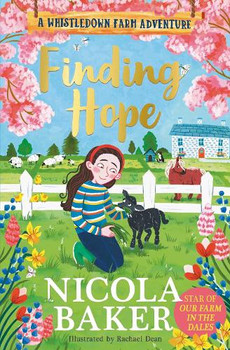Empathy and Animals
- Aug 7, 2025
- 2 min read
This guest feature on 'Exploring empathy through animals: Discussing how animal characters can foster empathy in young readers and why they are such important characters in your books' comes from Nicola Baker and that was the brief I gave her to help guide. Her book, Meeting Meg is a Whistledown Farm Adventure and if, after reading this Blog you'd like to read the book, or any of the other titles in the series, visit this page where you can see them all.
Animals are a big part of my life and I couldn’t imagine life without them! Having watched my own children grow up with a whole host of animals I know how much it’s helped them develop empathy as well as responsibility, resilience and kindness.
Sometimes books are children’s only connection to animals as they don’t have their own pets at home, but just about every child I’ve met is drawn to an animal of some sort - whether it’s kittens or ponies or snakes and spiders! When I’m on my school visits, children always want to tell me about their pets, what they’ve seen at an open farm they’ve visited or the animal they’d love to have if they could.
In the Whistledown Farm Adventures Ava hasn’t had a lot of experience with animals before she goes to stay on the farm in the first book Finding Hope. She’s also a little lonely and doesn’t always talk about how she feels. Finding a lamb out in the field that needs assistance kick starts her love of animals and she wants to do everything she can to help it. As their bond develops and grows, Ava begins to feel like she belongs and is less alone. She begins to find friendship and confidence while learning to talk about how she feels.
In the other books in the series, Rescuing Ruby and Meeting Meg, Ava’s empathy towards animals just keeps getting stronger and her connections with people grows too as she’s able to put herself in other people’s shoes.
Sometimes exploring themes and situations through animals allows children to experience important things without it feeling too close to home. Animals in books also allows them to experience the relationships we have with them, fostering empathy and well as the joy and sometimes heartbreak that they bring. Books that have endangered animals in pose questions for children about what’s happening in around them, whether it’s right on their doorstep or on the other side of the world.
All these questions they have from reading opens discussions with teachers, parents and friends which allow them to explore how they feel about things. This helps develop emotional skills, social skills, kindness and understanding and broadens their perspective. Stories are powerful as well as fun!

.jpg)









































Comments